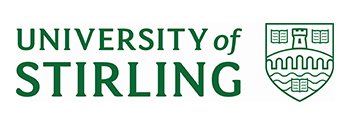The United Kingdom (UK) is home to some of the world’s oldest universities and colleges having their roots in the 12th and 13th centuries. Coming from such a strong legacy, education in the UK has become a benchmark for other countries.
Here are the top six reasons why studying in the UK is so popular with Indian students:
1. Academic excellence
Universities in the UK have the best academic standards in the world. Four out of the top 10 universities in the world are from the UK [QS World Ranking 2019] including the likes of Oxford and Cambridge. When studying in the UK, you will find that practical and utility-based knowledge is preferred over textbook learning. This will enable you to acquire critical thinking and analytical skills along with creative ability in your chosen discipline.
2. Quality education
The Quality Assurance Agency (QAA) is an independent body in the UK that regularly assesses the education standards of all universities and colleges in the country. Besides checking their performances through audits and subject reviews, it helps identify the best education practices and sends feedback for improvisation. These research standards are also examined by the UK higher education funding bodies, which publish their findings at regular intervals. This ensures all students have access to the best quality of learning, research, and teaching irrespective of the course they choose to pursue.
3. Shorter duration of courses
Courses in the UK education system are shorter and more intensive than in many other countries, which means you’ll graduate sooner, and without compromising on quality. While you can complete an undergraduate program in three years, you’ll be able to finish a graduate program in just one year. This not only saves your time but also a chunk of money spent on tuition fees and living costs.
4. Work while you learn
To manage your everyday living expenses along with your studies, you can work part-time for up to 20 hours a week during term time. You can even work full-time during your semester break. This will help you pay for your bills as well as gain industry experience in your field of study as well.
5. Explore Europe while studying
The UK is well connected to major European countries like France, Netherlands, and Belgium, being the closest at distances ranging from 300 – 1,000 miles. With the airport being functional 24 hours, you can explore different places while studying in the country.
6. Health benefits for students
As an international student, you’ll have access to free medical treatment while studying in the UK through the National Health Service (NHS). To avail of this benefit, you will have to pay a small International Health Surcharge (IHS). Your Reagan Global counselor can advise you about this detail.
| S.NO | Study Program | Average Fee (In Euros* ) |
|---|---|---|
| 1 | Undergraduate bachelor degree | GBP 10,000 to GBP 20,000 per year |
| 2 | Postgraduate master’s degree | GBP 10,000 to GBP 20,000 per year |
| 3 | Doctoral degree | GBP 15,000 to GBP 24,000 per year |
*Please note that: all figures are indicative and Ph.D. cost might differ as fully funded options are also available in the UK
| S.No | University Name |
|---|---|
| 1 | University of Bristol, Bristol, England |
| 2 | University of Glasgow, Glasgow, Scotland |
| 3 | Durham University, Durham, England |
| 4 | University of Birmingham, Birmingham, England |
| 5 | University of Leeds, Leeds, England |
| 6 | The University of Sheffield, Sheffield, England |
| 7 | University of Nottingham, Nottingham, England |
| 8 | Cranfield University, Cranfield, England |
| 9 | Queen Mary University of London, London, England |
| 10 | Lancaster University, Lancaster, England |
| S.No | University Name |
What if we told you that you can support your living in the UK as an international student by working part-time! Not only this, working alongside your studies is a great way to gain work experience in your field of study.
Students holding a Tier 4 (general) or a Tier 4 (child) visa can work up to 20 hours a week during their studies and full-time during holidays vacations if they:
- are studying at a publicly-funded higher education institution
- are studying a short-term study abroad program with an overseas higher education institution
- are over 16
- are studying a course at NQF level 6 (degree level) and above
Refer to the UK Council for International Student Affairs (UKCISA) for more information.
It is important to note that you must not breach your immigration conditions as it is against the law in the UK. You cannot work if your passport sticker or identity card says ‘No Work’ or ‘Work Prohibited’. Breaching the law in the UK can have disastrous consequences including deportation.
Options you can consider
You can choose from a range of options when it comes to working as a student in the UK. If you’re lucky, you might just land a job on the campus. Stay in touch with your campus career cell and check their notice board/online portal for regular updates on job openings.
Nearly all retail stores and eateries hire students regularly. Check for openings at nearby departmental stores, cafes, multiplexes, bars, restaurants, hotels, hostels, and takeaway stores to find a suitable job.
If you’re a master’s or a doctoral students or if you think you can teach something, you could be a tutor and even earn better than the regular barista jobs. Not everyone lands up an office job, but if you have prior knowledge and experience of social media, marketing, sales, web development, etc., you could be employed on a part-time basis as an intern.
How to find part-time jobs in the UK?
- The best way to find a job on campus is to stay connected with your uni’s placement or career center. They regularly update their notice board or
- On-campus work opportunities include administrative jobs, at the cafeteria or as a teaching assistant
- For off-campus jobs, look for vacancies online on portals like StudentJob, Employment 4 Student, Careers Group London, etc.
- Look out for jobs in the hospitality and retail industry, they are usually available in abundance
- You can also work as a tutor if you are a student with any existing qualification or expertise
Working after graduation
You will have to apply for a visa extension if you wish to stay and work in the UK after you finish your program.
The three most common visas available to international students are:
| Start-up visa | Tier 2 (General) | Tier 5 (Temporary Worker) |
Note that you’ll not be able to apply for the popular Tier 1 (Graduate Entrepreneur) visa anymore. You shall have to apply for a Start-up visa. To find out if you’re eligible for any of these visas and how to go about with the process, visit the UK Government website.
Studying abroad can be an expensive affair for students going to study in the UK. However, an efficient budget plan can help you manage your living expenses more effectively. Before you depart from India, ensure that you consider expenses like accommodation, food, health coverage, and travel along with your tuition fee when calculating the estimated cost of studying in the UK.
1. Tuition fee is your prime expenditure
Your expenditure on tuition fees depends on the type of qualification and the university or school you opt for. There are many high-ranking universities and colleges in the UK with their fee structures. Further, the fee also depends on where in the UK you choose to study (there are different rules for England, Scotland, Northern Ireland, and Wales), and your study level.
Most commonly humanities, arts, and education courses are cheaper, while subjects such as medicine and engineering are likely to be more expensive. If you wish to study at the postgraduate level, the tuition fees are typically higher and the costs vary depending on the program. As with most other countries, MBA programs are often the most expensive
| S.NO | Study Program | Average Fee (in Euros*) |
|---|---|---|
| 1 | Undergraduate bachelor degree | GBP 10,000 to GBP 20,000 per year |
| 2 | Postgraduate master’s degree | GBP 10,000 to GBP 20,000 per year |
| 3 | Doctoral degree | GBP 15,000 to GBP 24,000 per year |
*Please note that: all figures are indicative and Ph.D. costs might differ as fully funded options are also available in the UK.
2. Where will you live? Calculate accommodation costs
Most universities in the UK offer on-campus residence facilities called the Halls of Residence to international students. These can be self-catered or full board. Certain campuses also provide self-catered shared houses or flats to their students. Living as a resident on-campus is a very affordable option. However, you need to apply for it separately, and well ahead of time to secure a slot for yourself.
If you are unable to find such accommodation, you might have to look for a room for rent, homestay or find localhost. Your university’s accommodation office may help you out in this case too as they often have a list of accommodation options available in the nearby area.
Your checklist when looking for a place:
- Costs
- Facilities
- Deposits
- Inventory
- Rent book
- Bill payment
- Tenancy agreement
- Council tax
- House rules, if any
The cost will vary from city to city. If you opt to rent an apartment, you will have to additionally pay for utility bills like electricity, internet, water usage, and also tenant’s insurance (in some areas of housing). House rent for a one-bedroom apartment generally ranges between £550 and £650 (Indicative).
Note that anyone over the age of 18 living in the UK is required to pay for local community services such as rubbish collection, police, fire brigade, leisure services, etc. You’ll have to pay for council tax if you’ll be living anywhere apart from an on-campus accommodation or sharing a home with a family or other full-time student.
Ask for a tenancy agreement before moving and do not sign just any document without understanding it. In most cases, universities help the students in finding accommodation, both on-campus as well as off-campus.
The student accommodation cost depends on the type and location of the accommodation. As per the NUS/Unipol Accommodation Costs Survey, London has the highest average weekly rent of approx. £157.48 per week and the cheapest rooms are in Northern Ireland cost around £83.01 per week.
3. Cost of your student visa
To study in the UK, the first step is to secure a valid study visa and that comes with its costs (approx. £348). Feel free to consult your counselor for the latest updates and information on the visa application process and related costs.
4. Living expenses
You need to keep a little money aside for your grocery shopping, social activities, and emergencies. When living in a foreign country as a student, it is better to keep track of your expenditures so that you do not overspend.
| S.No | Expenses | The approximate cost (monthly) |
|---|---|---|
| 1 | Bills (electric/ gas/ water) | £40 – £50 |
| 2 | Food and housekeeping | £160 – £200 |
| 3 | TV license (mandatory with TV or watching BBC online) | £12.56 (or £150.50 per year) |
| 4 | Mobile phone | £15 – £50 |
| 5 | Clothes and shoes | £25 |
| 6 | Leisure & sports (calculated on membership for the students’ sports center) | £10 – £20 |
| 7 | Books & stationery | £21 |
| 8 | Socializing | £120 |
| 9 | Travel & transport (based on the monthly cost of a student bus pass) | £32 |
| 10 | Childcare (if needed) | £656 |
Source:https://www.coventry.ac.uk/international-students-hub/new-students/coming-to-the-uk/living-costs-in-the-uk/ Please note that all figures are indicative
5. Keep safe. Consider health support and insurance
Several UK universities have initiated comprehensive health insurance plans for international students, but that is applicable as long your program is ongoing and ceases upon completion.
According to the National Health Service (NHS), you are required to pay £300 yearly for the duration the visa will be granted. However, the minimum amount varies based on leaves:
| S.No | Leaves Period | The Amount Payable for the Year |
|---|---|---|
| 1 | If your leaves include a part of a year that is 6 months or less | £150 |
| 2 | If your leaves include a part of a year that is more than 6 months | £300 |
Also, Tier 4 dependants are required to pay the surcharge. The immigration health charge will also be added to your visa application fee. If you already have medical insurance in India, you can check whether it can be extended to cover your stay in the UK.
6. Don’t ignore your taxes
Indian students in the UK are allowed to work 20 hours per week during academic sessions and full-time during vacations.
If you have a job while you are studying in the UK, then you’ll also have to pay the tax and national insurance:
- Income tax: If you earn more than £1,042 a month on average – this will be your allowance
- National insurance: If you earn more than £166 a week
Your employer usually deducts Income Tax and National Insurance from your wages through Pay As You Earn (PAYE).
Remember, the exchange rate variations may also affect your budgeting. We suggest you also look for a part-time job while you are studying in the UK or seek scholarships in the universities you apply to. This can help lower your cost of studying abroad to a great extent.
Our Testimonials

The consultancy guide as per student aspirations. And the shortlisting as per student profile was seamless and easy. And visa interview guidance by taking mocks and giving tips is very helpful as I applied for US university. Especially Kavita mam mentorship helped me with mocks and shortlisting.
Overall my experience was the best with Reagan Global Consultancy


I took USA student process consultancy service from Reagan Global Services and I am satisfied with their work. In my opinion they know the in and out of the process w.r.t each college they are linked with. Special mention for Kavitha who is my counselor, she supported in all steps during the process. She has a mindset of plan B, where if plan A fails and she know how to get the work done. That's how I got admissions into multiple universities.


I am pruthvi Pasham. Thank you so much for your help sir it would be greatly appreciated and i am glad that i made it till here with your help and regan global services team during the time of admission. it helped me achieve my dream to get a master's degree from a reputed institution.


I would like to thank the internal department of Reagan Global for helping my son, Wade, in exceeding mine and his expectations in the subject of Math. Your company has given me the confidence that with additional assistance, my child's deficiencies are being overcome and improvement was made after the second session and has continued through the entire program. Not only were the tutors professional and excellent at their job, but they also were very sensitive to the needs of my child. Should I run across anyone that needs tutoring, I will not hesitate to mention RGS to them. Thank you very much for your help


Thanks to Reagan Global Services who helped me in finding a master’s program that best fits my work profession. Starting from counseling till University admission they guided me in every step. I’m happy with Reagan team for following up throughout the process. Post admission, US team was in regular contact with me during my travel to the US, suggested accommodations and checked my well being. They are amazing people, they are just a call away if you need any assistance. I’m still in contact with them and I’m really glad that I met them. I personally recommend Reagan Global Services for all the students/working professionals who are looking for a consultancy to pursue your dream education!


Instilling a trust in the student planning to study abroad is very important and I discovered the same here. I was not satisfied with the choice of universities for the Industrial Engineering program before coming here. The team helped with the best of the choices of suggesting me Public Research University and helped with all the process requirements.


Reagan GLobal services has kept up-to-date information on my domain of interest for the Master's. They have been very supportive and informative every step of the way when it comes to admissions to universities. They have been very careful about processing applications from international students. I commend regan global services for their level of professionalism and reliability throughout this process.


Being a very enthusiastic person, when I was exploring to study abroad during my final year of Engineering, along with my friends I just walked in for counseling and I was amazed on the details shared during my first visit itself. I decided to follow the process without any further doubts. The team is expert in helping with documentation, visa guidance and mock interview which helped me to crack the final interview.


Karthik has mastered quite a few concepts in math in the past few weeks. I am very impressed with the instructor. I initially had some doubts about the online training thing, but it has turned out to be perfect. The sound is clear and Kartik has been following it thoroughly. I have started recommending to as many as possible……Many Thanks!


I took a good decision to follow my dream of studying in USA after working for two years in Accenture. The team helped me with good choice of universities matching to my profile and I am happy to declare that I got into my dream University – Colorado State University for Engineering program concentrating on Energy Systems. I liked the personalized service devoted whenever I met the team towards my process.


Esosa's grades have picked up to four A's and two B's. We have been very pleased with your extraordinary customer service and quality of your program. Please keep up the good work; it is making a BIG difference. Thank you!





















